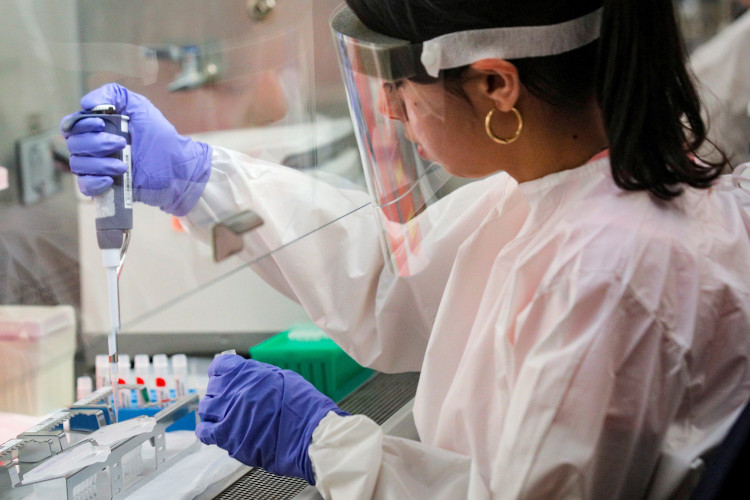A report by Forbes in April revealed that several male patients infected with coronavirus developed testicular pain. While orchitis (inflammation of the testicles) isn't new, it certainly is in the world of COVID-19.
Pre-coronavirus, viral infections often include inflamed testicles as one of the symptoms. Orchitis could be observed even in young children after a flu-like disease or cold, and was and is most notable as a symptom of an active mumps virus infection.
Beyond the pain of inflamed scrotum, can coronavirus live and grow in semen? While it's easy to assume being sexually active may come last in the list of things to do when one has COVID-19, but recovery may bring some interest to sex, especially that quarantine guidelines have forced many couples to spend some time apart. Some people are also asymptomatic, which increases the instance of spreading the virus through sexual contact.
On JAMA Network Open last week, a small study was published which reported semen test results of participants exhibiting COVID-19 infection.
Among 38 male patients at a hospital in China, six patients had the coronavirus present in their semen sample. Four of the six were still actively ill, but the remaining two had already shown signs of recovery. Studies on viral detection and semen persistence are beneficial to clinical practice and public health, especially concerning viruses that could cause high mortality or morbidity, such as the coronavirus strain that causes COVID-19.
Granted, this was an extremely small study, and there was no control group or follow-up testing of the individuals who had an active virus in their semen samples. But it does add another area of concern when it comes to layers of protection and layers of spread in this illness.
Sexual activity might be the last thing a person with COVID-19 can think of, but the study raises the point that there are several modalities of transmission, and multiple body organs can carry the virus. So if you suspect you've been infected with the disease, you may want to hold off having sex, even after you've been declared negative of the coronavirus.
For now, further studies are needed to clarify whether COVID-19 can be sexually transmitted. This is not to say that every male should get their semen tested to detect the virus, but it's important to keep in mind the possibility of the virus being able to thrive in semen.
It's also worth noting that sexual encounters usually involve some sort of droplet sharing one way or another, so yes, maybe just skip the activity altogether, especially if either one of you has to frequently go out.






